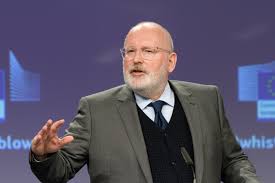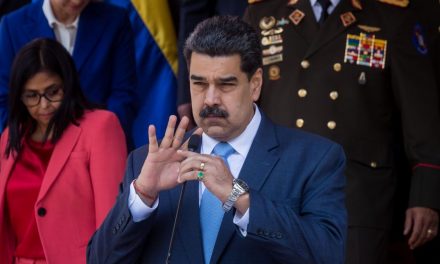14 March 2019
First Vice-President of the European Commission Frans Timmermans said that there was no progress made by Romania since the EC’s latest report under the Cooperation and Verification Mechanism (CVM) last autumn. Progress is needed, he stressed. He said this when he visited Romania to accept the Doctor Honoris Causa title from the political science university SNSPA in Bucharest, on 11 March. Asked about the likelihood of having Article 7 of the EU Treaty activated in the case of Romania, he avoided a direct answer but said that the CVM gives the EC the chance to settle the issues by alternative means. European Commission has so far triggered Article 7 of the Lisbon Treaty against Poland and Hungary.
Romania, which holds the rotating EU presidency, has faced growing criticism from the European Commission and the European Parliament in recent months. Brussels views that the Eastern European country is backsliding in the fight against corruption and heading down the same illiberal path as Poland and Hungary.
Critics view PSD (the ruling party) of trying to push through legal changes to weaken the independence of the judiciary to help politicians accused of corruption, including senior PSD officials such as Dragnea.
Dragnea, the de facto government leader, cannot become prime minister due to his suspended jail sentence. He is taking the country on an anti-EU path meant to serve his own interests.
A Romanian special unit tasked with investigating magistrates and justice-related crimes announced it has launched a probe into a complaint against Timmermans, EC vice president Vera Jourova, European justice commissioner Angela Cristea and Romanian prosecutor general Augustin Lazar. The officials are suspected of organised crime grouping, abuse of service, intellectual forgery, spreading false information, all related to a suspected ‘forgery’ of the CVM report published in November.
In February, the European Commission said Romania does not have jurisdiction in a probe opened by a special prosecuting unit for magistrates against Timmermans and other top EU top officials. One wonders whether Romania is on the path of ‘Romexit”.
European Parliament formally nominated Laura Codruța Kövesi to become the first head of the newly-created European Public Prosecutor’s Office. The Romanian government opposes Kövesi’s candidacy and has become increasingly desperate in its attempts to prevent her getting the job by lobbying the member countries. Kövesi was sacked from the post of Public Prosecutor in Romania.














